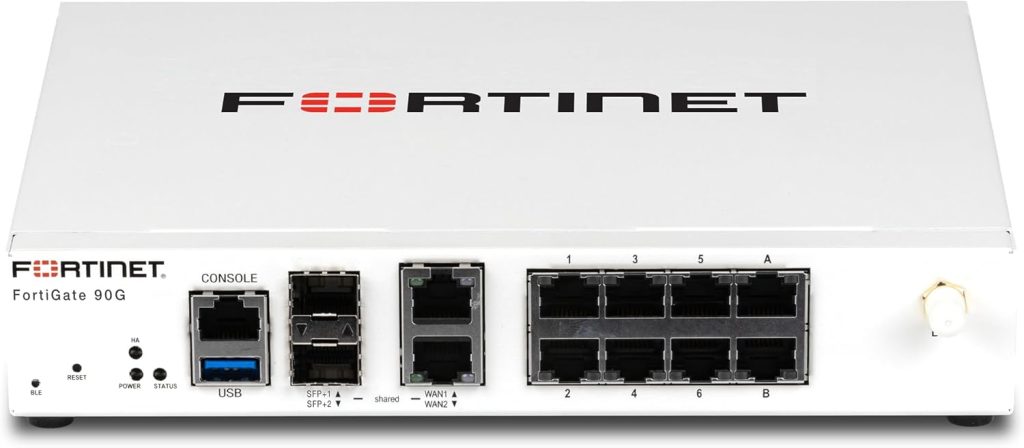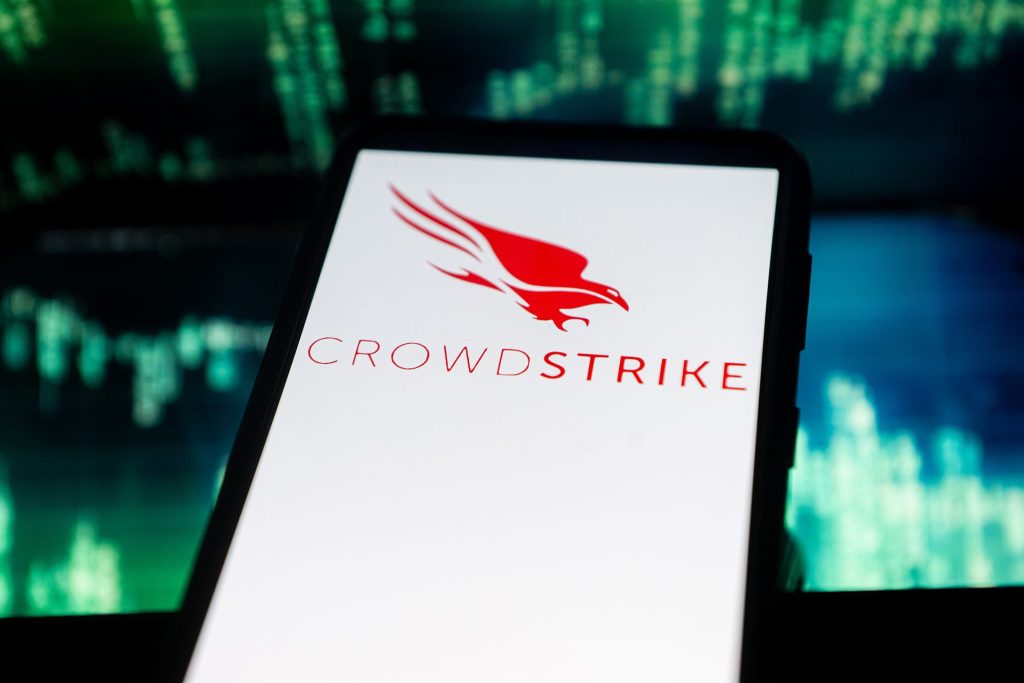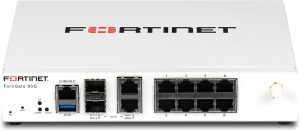In today’s rapidly evolving digital landscape, cyberattack threats loom more significant than ever. As our lives become increasingly connected, the need for robust cybersecurity solutions has never been more critical. This conversation highlighted why these emerging cybersecurity companies matter so much in our digital age.
The Rising Threat Landscape
Cyber threats have evolved beyond simple viruses to sophisticated, multi-staged attacks that can incapacitate whole organizations. Current statistics estimate that the worldwide cybercrime expense will reach $10.5 trillion annually by 2025. This magnitude indicates how desperately new cybersecurity solutions are needed.
The startups featured in this article are at the forefront of developing cutting-edge technologies to protect our digital assets. From AI-driven threat detection to cloud-native security solutions, these companies are changing how we protect ourselves from cyber threats.
Fortinet

Founded in 2000, Fortinet has grown from a startup to a cybersecurity powerhouse. FortiGate’s flagship product provides next-generation firewall protection that safeguards organizations from sophisticated threats.
What sets Fortinet apart is its Security Fabric approach, which offers a comprehensive suite of security solutions that work together seamlessly. This integrated approach ensures no gaps in protection across an organization’s entire digital infrastructure.
During a recent implementation of Fortinet’s solutions at my company, I was impressed by how their unified security platform reduced our management overhead while strengthening our overall security posture. Their ability to provide visibility across diverse environments—from traditional networks to cloud deployments—makes them a standout in the industry.
Seven AI
Seven AI is a next-generation cybersecurity company that leverages artificial intelligence in real-time threat detection and response. Its platform employs advanced machine learning capabilities to identify abnormal patterns and potential attacks before they can inflict harm.
Seven of AI’s behavioral analytics are exceptionally robust. Rather than relying solely on signature-based detection, it analyzes user and system behavior to identify anomalies that may indicate a security incident.
Their products are particularly valuable to organizations with vast amounts of data and complex networks where other security products might miss subtle indications of compromise.
Wiz
Cloud security has become critical as more organizations migrate their operations to the cloud. Wiz has emerged as a leader in this space, offering cloud-native security solutions that provide comprehensive visibility and protection across multi-cloud environments.
Founded by cybersecurity experts with extensive experience, Wiz’s platform stands out for its ease of deployment and powerful capabilities. They’ve developed innovative approaches to identifying misconfigurations and vulnerabilities in cloud infrastructure that could potentially lead to security breaches.
Their focus on reducing complexity while providing robust protection has made them a favorite among security professionals in increasingly complicated cloud environments.
Abstract Security
Abstract Security takes a unique approach to cybersecurity by focusing on securing the software development lifecycle. In an era where applications are constantly being developed and deployed, securing code from the ground up has become essential.
Their platform integrates seamlessly with development workflows, allowing teams to identify and remediate security issues early. This shift-left approach to Security helps organizations save time and resources by addressing vulnerabilities before they make it into production.
The company’s emphasis on developer-friendly security tools has helped bridge the traditional gap between security and development teams, fostering a more collaborative approach to building secure applications.
Check Point Software Technologies
Check Point Software Technologies has established itself as a pioneer in cybersecurity, offering a wide range of products, including firewall solutions, endpoint protection, and cloud security.
Their Infinity architecture provides unified security management across networks, cloud deployments, and mobile devices. This comprehensive approach ensures consistent protection regardless of where data resides or how users access it.
What distinguishes Check Point is its threat intelligence network, which continuously analyzes and shares information about emerging threats with its customer base. This collaborative defense mechanism helps organizations stay ahead of potential attacks.
CrowdStrike

CrowdStrike has revolutionized endpoint security with its cloud-delivered platform, which combines next-generation antivirus, endpoint detection and response, and proactive threat hunting.
Their Falcon platform leverages AI and machine learning to detect and prevent real-time attacks without impacting system performance. This lightweight approach to endpoint protection has made them particularly popular among organizations concerned about balancing Security with user experience.
I recently witnessed CrowdStrike’s capabilities firsthand when it helped a colleague’s company respond to a potential breach. Their team’s expertise and the platform’s advanced analytics contained the threat and provided valuable insights that strengthened the company’s overall cybersecurity strategy.
Armis
Securing these connected devices has become a significant challenge as the Internet of Things (IoT) expands. Armis specializes in identifying and securing all devices in an organization’s environment, including unmanaged IoT devices that traditional security tools might miss.
Their agentless approach allows them to discover and evaluate devices’ security postures without requiring software installation. This capability is crucial for organizations with operational technology and IoT devices that can’t be modified with security agents.
Armis’s asset intelligence platform provides continuous monitoring and risk assessment, helping security teams identify and address vulnerabilities before attackers can exploit them.
Vectra AI
Vectra AI focuses on network detection and response. It uses artificial intelligence to identify attackers’ behaviors and respond to threats in real-time. The platform analyzes network traffic to detect signs of compromise and prioritizes alerts based on risk level.
Vectra AI is particularly valuable because it can reduce alert fatigue by showing only the most critical threats. This approach helps security teams focus their efforts where they’re TJ most needed, improving overall efficiency and effectiveness.
Their emphasis on augmenting human analysts rather than replacing them demonstrates a practical understanding of how technology and expertise must work together to create robust security programs.
Cisco
While Cisco is no startup, its cybersecurity division continues to innovate like one. Through internal development and strategic acquisitions, Cisco has built a comprehensive security portfolio that addresses virtually every aspect of cybersecurity.
Their Secure Access Service Edge (SASE) architecture integrates networking and security capabilities to protect users, applications, and data regardless of location. This approach is particularly relevant in today’s distributed work environments.
Cisco’s size and resources allow it to invest heavily in research and development, resulting in cutting-edge solutions that can be scaled to meet the needs of organizations of any size.
Cyera

Data security has become increasingly complex as information flows between on-premises systems, cloud services, and endpoints. Cyera specializes in data security posture management, helping organizations discover, classify, and protect sensitive information wherever it resides.
Their platform provides continuous visibility into data assets and security controls, allowing organizations to identify and address risks proactively. This approach is particularly valuable for companies with regulatory compliance requirements and data privacy concerns.
Cyera’s emphasis on automation helps reduce the manual effort typically associated with data security, allowing security teams to focus on strategic initiatives rather than routine tasks.
Conclusion
The cybersecurity landscape continues to evolve at a breathtaking pace, with attackers developing new techniques and targets daily. The startups highlighted in this article represent the innovative approaches being developed to counter these threats and strengthen our digital defenses.
What unites these companies is their commitment to leveraging cutting-edge technologies—from artificial intelligence and machine learning to cloud-native architectures—to provide more effective, efficient, and user-friendly security solutions.
As our digital footprint expands and the potential impact of security breaches grows, these cybersecurity innovators will play an increasingly critical role in protecting our digital lives and business operations. The future of cybersecurity lies not just in responding to threats but in anticipating and preventing them—a vision these companies are helping to realize.
ALSO READ: How to Use AI for Strategy and Strategic Management
FAQs
When selecting a cybersecurity solution, consider your needs, existing infrastructure, scalability requirements, and budget. Also, evaluate the vendor’s threat intelligence capabilities, integration options, and support services.
AI and machine learning have become essential components of effective cybersecurity strategies. These technologies can analyze vast amounts of data to identify patterns and anomalies that might indicate threats, often detecting sophisticated attacks that traditional signature-based approaches might miss.
Cloud-based security solutions can be as effective as on-premises alternatives and often offer scalability, ease of deployment, and automatic updates. The key is ensuring the solution is configured correctly and integrated with your existing security infrastructure.
Employee training is a critical component of any cybersecurity strategy. Even the most advanced technical solutions can be compromised by human error. Regular training helps staff recognize potential threats like phishing attempts and follow Security best practices.
Cybersecurity is not a “set it and forget it” proposition. Regular reviews and updates are essential, with most experts recommending quarterly security assessments and immediate updates when new vulnerabilities are discovered, or significant changes are made to your IT environment.




